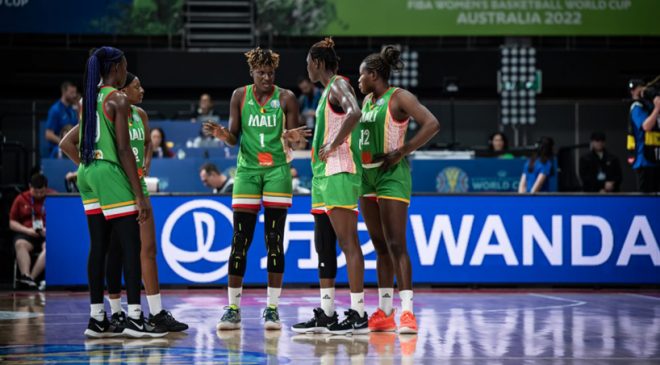
The International Basketball Federation’s (FIBA) recent sanctions on high-ranking female basketball officials in Mali have underscored the need to address systemic abuse of young athletes, according to a statement by Human Rights Watch. However, concerns have been raised due to the appointment of another official suspected of abuse as the head of the Mali Basketball Federation (FMBB), emphasizing the urgent need for continued monitoring by FIBA and the International Olympic Committee.
FIBA’s sanctions, issued on June 21, 2023, included a lifetime ban on Amadou Bamba, the former coach of the Mali women’s national basketball team, and penalties for four other top officials, including former federation president Harouna Maiga. Human Rights Watch had previously released a report in June 2021 exposing sexual extortion and cover-ups of abuse within the FMBB. Minky Worden, Director of Global Initiatives at Human Rights Watch, commented, “FIBA’s own report has confirmed the long-standing abuse of young female basketball players in Mali. While it’s significant that some top officials have been sanctioned, there has been no redress or compensation for the teenage girls who bravely came forward and faced retaliation. This is especially concerning considering an implicated official now holds a leadership position in Malian basketball.”
Following reports by Human Rights Watch and the New York Times exposing sexual abuse within Malian basketball, FIBA appointed Richard McLaren, a Canadian lawyer and FIBA integrity officer, to conduct an independent investigation. McLaren’s extensive 149-page report, published in September 2021, substantiated accounts of sexual exploitation, extortion, and retaliation within the FMBB, revealing a deeply ingrained culture of sexual abuse. However, Jean-Claude Sidibé, the former FMBB president accused of threatening witnesses and violating FIBA’s purported “zero tolerance” policy on sexual abuse, was reappointed as the president of the Mali Basketball Federation in December 2022, disregarding the McLaren report’s recommendation that FIBA’s Disciplinary Commission review the evidence against Sidibé.
Worden emphasized, “Without an approach that centers survivors and acknowledges trauma, children, parents, and athletes are less likely to report sexual abuse and cover-ups.” The McLaren report revealed that federation officials and others intimidated 22 survivors, preventing them from providing evidence. The few players who agreed to be interviewed expressed fear of retaliation. One player reported direct retaliation by the FMBB, which removed her from the World Cup national team roster after she and her family reported sexual abuse and a cover-up by the former federation president. In March 2023, Women’s National Basketball Association (WNBA) players released a video demanding justice, calling on FIBA to address sexual abuse in basketball and protect young players in Africa. Yet, two years after the McLaren report’s publication, survivors and whistleblowers continue to face threats and are unable to play safely. A teenage whistleblower, who reported sexual abuse, experienced threats and career setbacks, leading her to sue the federation for failing to protect her from retaliation. Hamane Niang, the former president of the FMBB during the abuse incidents, has returned to his position as FIBA president.
While FIBA has initiated the development of a new safeguarding policy and established a Safeguarding Council, there is currently no clear avenue for athletes to safely report abuses to these bodies, according to Human Rights Watch. The flaws in FIBA’s process, including the endangerment of survivors during the McLaren investigation, reflect underlying issues in FIBA’s governance, structure, and responsibilities towards basketball players. With the Youth Olympics scheduled for Dakar, Senegal in 2026, FIBA has an opportunity to incorporate human rights into its operations. This includes implementing a safeguarding policy across the federations it oversees, conducting background checks for federation leaders to exclude abusers, and providing compensation to women and girls who came forward to report abuse. Worden concluded, “FIBA’s sanctions validate the accounts of past and present players, survivors, whistleblowers, and activists who took immense risks to expose this abuse. However, more must be done to protect young players who continue to face threats and retaliation.”
